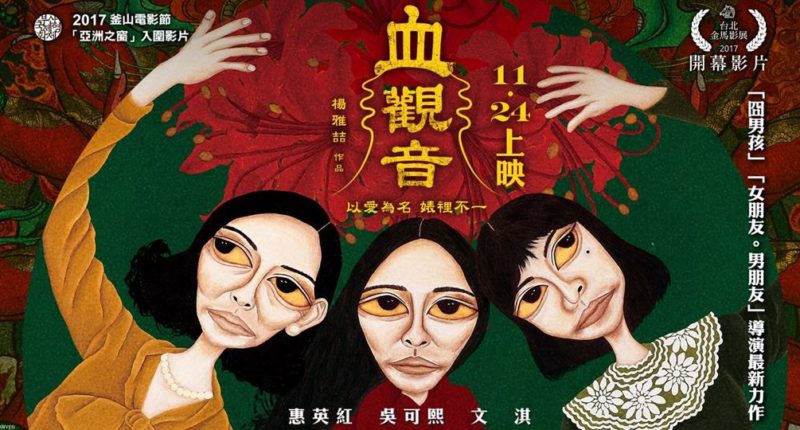Editor’s Note: In the first of a series of pieces looking at Taiwanese culture through its movies, Mindy Lu will highlight The Bold, the Corrupt, and the Beautiful– a thought-provoking movie exposing the sordid underbelly of Taiwan, and some of the most disturbing aspects of human nature.

If you are a fan of movies centered on the criminal underworld, if you love the atmosphere found in psychological warfare on the silver screen, and at the same time are willing to glimpse Taiwanese traditional culture through a less than stereotypical ‘everyone in Taiwan is friendly’ lens, then this movie is a must-see.
“The Bold, the Corrupt and the Beautiful” was directed by Yang Ya-che, a previous winner of the Best Director in the Taipei Film Awards.
The movie itself was nominated for eight Golden Horse Awards, winning four, and is essentially a feminist crime film centered in a labyrinthine of human depravity, intrigue, and control – all in the name of love, and set before a background of elements of traditional Taiwan.
Set in the 1980s in Taiwan, the film depicts a land speculation scheme under a government urban-planning division in southern Taiwan, and revolves around three women in “Tang’s Antique Shop”- the elegant but cold-blooded matriarch Madame Tang (White Gloves), the beautiful Tang Ning with her unregulated nature, and Tang Chen, who slowly changes from a naive to a ruthless individual.
The shady deals surrounding land speculation go smoothly at first with most of their ostensibly amicable friends involved.
However, the plot turns a corner after the unexpected murder of the Lin family, one of the investors in the scheme before the conspiracy slowly unravels as the movie progresses.
Social issues and political disturbance
A brief understanding of Taiwan’s political history is required to truly comprehend the sometimes metaphorical and confusing plot.
Based on actual events, there are references to the Chiang Kai-shek period in national history, political infighting of the Chinese Nationalist Party (KMT), the Tang Ying-shen incident, and the bloody case of Liu Bang-you amongst others.
It is also worth noting that since Taiwan is a high-density country in terms of population, similar issues with land speculation schemes as featured to falsely increase real estate prices, is still a problem in society today.
However, with corruption universal, and “White Glove” types around the world forever shuttling between business and political elites, just as the director, Yang Ya-che said in an interview with CommonWealth Magazine, “The ‘White Gloves’ (of this world) are way too mysterious, and collusion between government and business is universal. No one (has) ever made a film about this to study how they do it, and what they are thinking about.”
Traditional Taiwanese culture
A Taiwanese “national treasure” the Hoklo (Taiwanese) speaking storyteller, and then 82-year-old Yang Hsiu-ching narrates the film while playing a Taiwanese yueqin (a traditional instrument often used when singing folk rhymes), and representing a figure similar to a Yama in Buddhism making judgements in the afterlife.
People can also see a threading Guanyin statuette throughout the film in what is a chance to glimpse the marriage rites of Chinese ghosts.
The film too captures the contradictions in belief between Confucianism and its deeply rooted pecking order in Chinese culture in the faith being able to rationalize unreasonable controls in the name of love, which probably resonates with many Asians.
This is best portrayed in a scene in which Madame Tang holds Tang Chen’s hand while she writes, both teaching her and controlling her at the same time.
She does so saying“I am doing it for your own good,” in what is perhaps the most thought-provoking line used several times over in the movie.
The Bold, the Corrupt and the Beautiful is a complicated movie, and one people need to decode as the story unfolds – to help understand Taiwan.











Comments are closed.